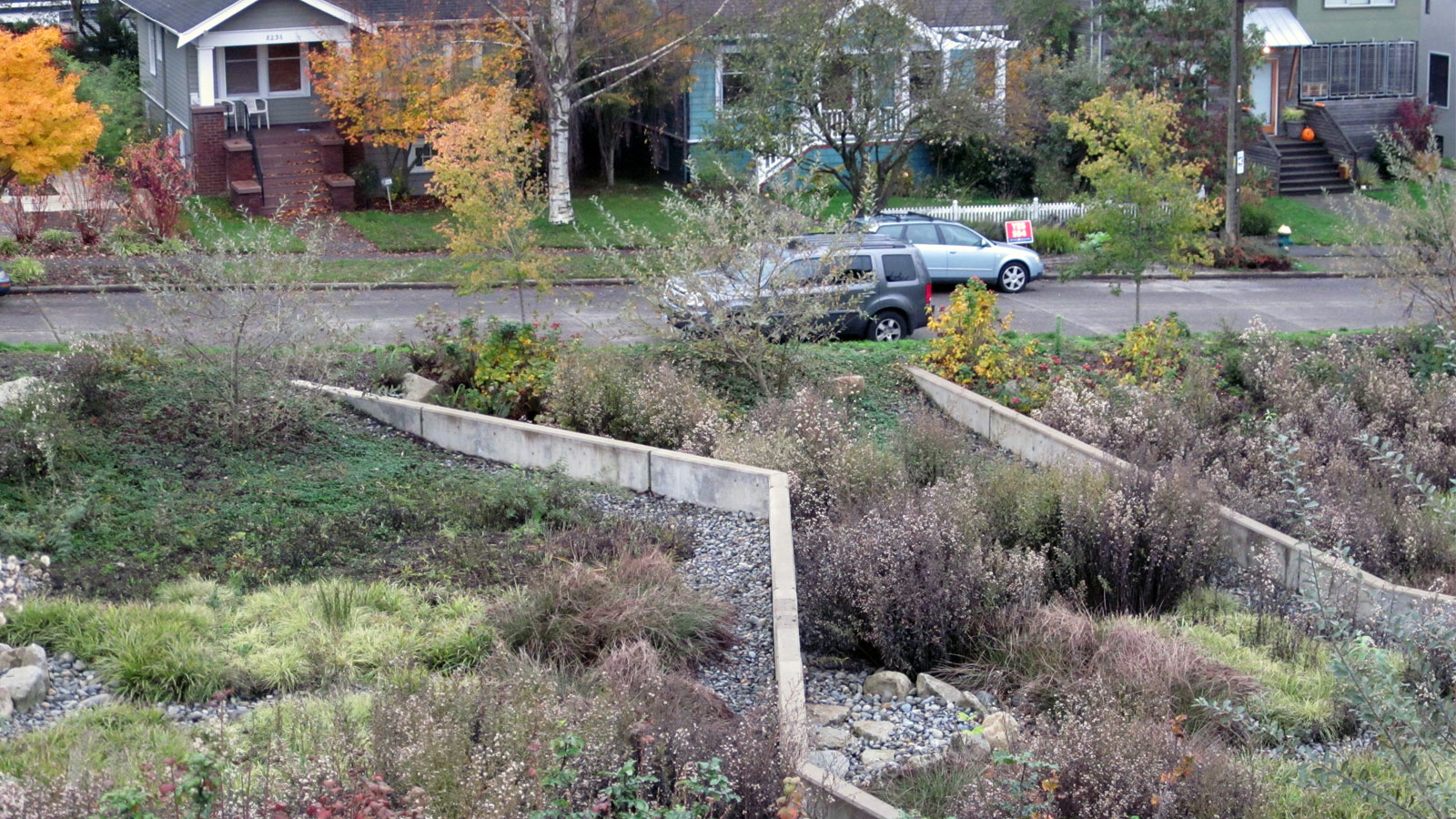In many parts of the country, climate change is bringing more extreme rain. Heavy downpours can overwhelm city stormwater systems.
So some cities offer voluntary programs that reimburse homeowners for the cost of installing cisterns or rain gardens. These solutions can hold excess water during storms.
But without careful planning, participation in these programs may not be equitable.
Daniel Brent of Penn State University analyzed Seattle’s Rainwise program, and found that mostly upper-middle-class homes participated.
“The households with the lowest housing values were not very likely to participate,” Brent says.
He says that’s partly because only certain areas were eligible.
“These are in locations that are often close to water bodies, which are generally desirable wealthy areas.”
He says residents also had to be able to front the cost of creating the garden. Even though its repaid, that initial expense can be a barrier.
So Brent says to make these programs more fair, cities should consider expanding eligibility and recruiting diverse participants at the outset.
He says with planning, these programs can continue meeting their environmental goals, but also doing it in an equitable way.
Reporting credit: Sarah Kennedy/ChavoBart Digital Media
Source link


